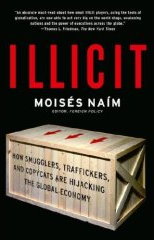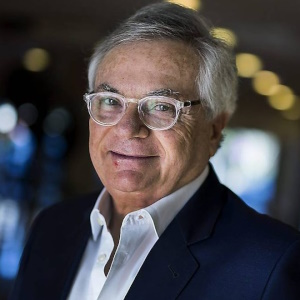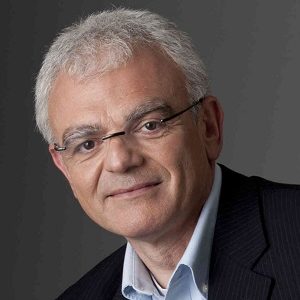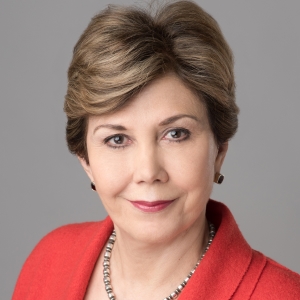Moises Naim Speaker Biography
Internationally-Syndicated Columnist, Bestselling Author and Senior Associate in the International Economics Program at the Carnegie Endowment for International Peace
Moisés Naím is a distinguished fellow at the Carnegie Endowment for International Peace. He is also the chief international columnist for El País and La Repubblica, Spain’s and Italy’s largest dailies, and a contributing editor to the Atlantic. Naím is also the host and producer of Efecto Naím, a weekly television program on international affairs that airs throughout the Americas via DirecTV (NTN24).
Foriegn Policy
Before joining Carnegie, Naím was the editor in chief of Foreign Policy for fourteen years. During his tenure, the magazine was relaunched and won the National Magazine Award for General Excellence three times. He is author of many scholarly articles and more than ten books on international economics and politics. His most recent book, The End of Power, a New York Times bestseller, was selected by the Washington Post and the Financial Times as one of the best books of the year. The End of Power was also Mark Zuckerberg’s inaugural pick for his 2015 “A Year of Books” initiative. His previous book Illicit: How Smugglers Traffickers and Copycats are Hijacking the Global Economy, published in 18 languages, was selected as one of the best books of the year by the Washington Post and served as the basis for a documentary produced by National Geographic.
Awards and Honors
In 2011, Naím was awarded the Ortega y Gasset prize, the most prestigious award in Spanish journalism. The British magazine Prospect named him one of the world’s leading thinkers in 2013, and the Gottlieb Duttweiler Institute of Switzerland ranked him among the top 100 global thought leaders in 2014 and 2015.
Public Service
Naím’s public service includes his tenure as Venezuela’s minister of trade and industry in the early 1990s, director of Venezuela’s Central Bank, and executive director of the World Bank. He was also a professor of business and economics and dean of IESA, Venezuela’s main business school. He is chairman of the board of the Group of Fifty as well as a member of the board of the Open Society Foundations.
Moises Naim Speaking Topics
What is Globalization Doing to Family Firms?
In most countries, family-owned and managed companies are still the most frequent form of business organization, but today they are facing unprecedented challenges. What are the new cultural, business, technological and political forces that are making the traditional family-business arrangements unsustainable? How are successful business families responding to the new challenges?
At the Forefront of Globalization: Lessons from Global Smugglers
Criminals have proven to be faster than any other profit-oriented enterprise at detecting business opportunities in other countries and continents, exploiting such opportunities ruthlessly and effectively adopting the technologies and organizational practices that keep them profitable and ahead of both their criminal competitors and the governments that combat them. How do they do it.
The End of Power
We know that power is shifting: From West to East and North to South, from presidential palaces to public squares, from once formidable corporate behemoths to nimble startups and, slowly but surely, from men to women. But power is not merely shifting and dispersing. It is also decaying. Those in power today are more constrained in what they can do with it and more at risk of losing it than ever before. Award-winning columnist and former Foreign Policy editor Moisés Naím illuminates the struggle between once-dominant megaplayers and the new micropowers challenging them in every field of human endeavor. Drawing on provocative, original research, Naím shows how the antiestablishment drive of micropowers can topple tyrants, dislodge monopolies, and open remarkable new opportunities, but it can also lead to chaos and paralysis. Naím deftly covers the seismic changes underway in business, religion, education, within families, and in all matters of war and peace. Examples abound in all walks of life: In 1977, eighty-nine countries were ruled by autocrats while today more than half the world's population lives in democracies. CEO's are more constrained and have shorter tenures than their predecessors. Modern tools of war, cheaper and more accessible, make it possible for groups like Hezbollah to afford their own drones. In the second half of 2010, the top ten hedge funds earned more than the world's largest six banks combined. Those in power retain it by erecting powerful barriers to keep challengers at bay. Today, insurgent forces dismantle those barriers more quickly and easily than ever, only to find that they themselves become vulnerable in the process. Accessible and captivating, Naím offers a revolutionary look at the inevitable end of power—and how it will change your world.
Moises Naim Books
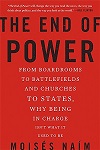
The End of Power: From Boardrooms to Battlefields and Churches to States, Why Being In Charge Isn’t What It Used to Be
Purchase Book